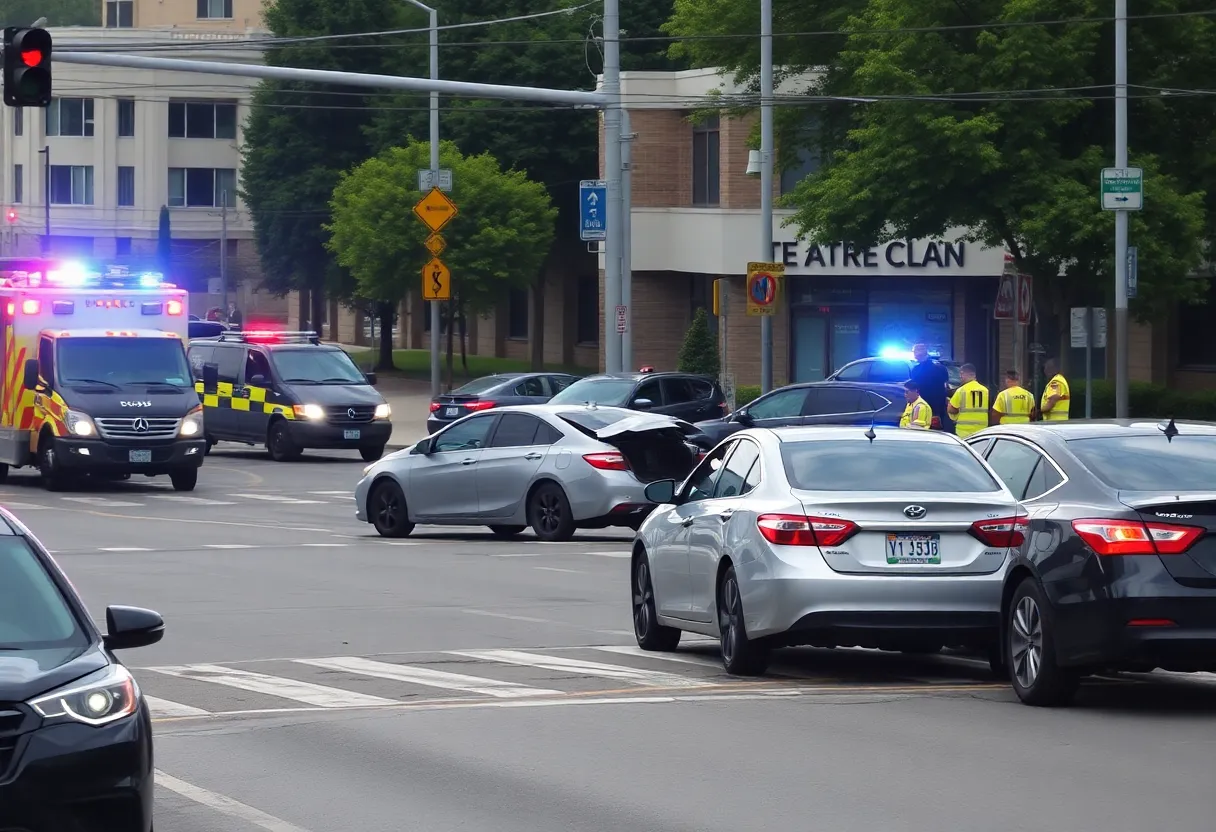California, October 4, 2025
News Summary
California Governor Gavin Newsom has signed AB 1340, allowing Uber and Lyft drivers to unionize and negotiate contracts. Set to take effect on January 1, 2024, this legislation represents a significant shift for gig workers, granting them rights previously unavailable under their classification as independent contractors. The law mandates companies to negotiate on key issues like pay and working conditions, while also providing protections against retaliation for union activities. Critics, however, raise concerns over challenges still facing drivers in their struggle for fair compensation and benefits.
California Governor Gavin Newsom has signed a landmark piece of legislation, AB 1340, granting Uber and Lyft drivers in California the ability to unionize and negotiate their first union contract, despite their classification as independent contractors. The law is set to take effect on January 1, 2024.
The new law, authored by Assemblymembers Buffy Wicks and Marc Berman, enables certified unions representing drivers to negotiate over vital issues such as pay, working conditions, and benefits while ensuring protections against retaliation for any union activities. This legislation is seen as a groundbreaking advancement for drivers in their long-standing pursuit of workplace rights.
Passed after the approval of the controversial 2020 ballot measure, Proposition 22, which defined drivers as independent contractors without the same rights as employees, AB 1340 represents a significant shift in the legislative landscape for gig workers. Under federal law, independent contractors lacked rights to collectively bargain, while employees have access to minimum wage and overtime protections.
Under AB 1340, app-based companies like Uber and Lyft are required to negotiate in good faith with certified unions on drivers’ issues including remuneration, deactivations, and paid leave. The Public Employment Relations Board (PERB) will supervise union elections and ensure adherence to negotiated agreements.
Initially, Uber and Lyft opposed this legislation but shifted their position after discussions led to reduced insurance coverage requirements through an additional bill, SB 371. While the law offers a pathway for drivers to organize, critics highlight that numerous challenges still remain in their quest for enhanced pay and benefits, especially in negotiations with tech giants.
To establish a union under the new law, labor leaders must obtain signatures from at least 10% of California’s approximately 800,000 ride-hailing drivers, followed by securing a 30% approval for formal union recognition. There are concerns among activists that the law does not provide an explicit right to strike, a critical component for effective union leverage and bargaining power.
The passage of this law follows a California Court of Appeals ruling that allowed collective bargaining rights for drivers, even with the limitations imposed by Proposition 22. Experts have voiced skepticism about the long-term implications of this legislation, indicating that Uber and Lyft may continue to maintain substantial control over drivers’ earnings and working conditions.
Labor leaders will also face administrative hurdles before any formal bargaining can take place, with some estimates suggesting that meaningful discussions may not commence until 2026. Alongside these developments, there is a comprehensive wage theft lawsuit underway against Uber and Lyft, which drivers hope will recover back wages and enhance future compensation.
Overall, AB 1340 and its accompanying legislation aim to create a balance between lowering costs for riders while empowering drivers within the gig economy. This new unionization framework positions California as the second state in the U.S., following Massachusetts, to adopt such measures for app-based drivers.
Frequently Asked Questions
What is AB 1340?
AB 1340 is a landmark legislation signed by California Governor Gavin Newsom that creates a pathway for Uber and Lyft drivers to negotiate their first union contract, despite being classified as independent contractors. It will take effect on January 1, 2024.
What rights does AB 1340 give to drivers?
The law allows certified unions to negotiate on behalf of drivers over pay, working conditions, and benefits while providing protections against retaliation for union activities.
How can drivers form a union under AB 1340?
Labor leaders must secure signatures from at least 10% of the approximately 800,000 ride-hailing drivers in California and achieve a 30% approval to formally recognize the union.
What challenges do drivers face with the new law?
While the legislation empowers drivers to organize, significant barriers remain, including the need to negotiate with tech companies for better pay and benefits and concerns about the lack of guarantee for the right to strike.
What is the Public Employment Relations Board’s role in this process?
The Public Employment Relations Board will oversee union elections and ensure compliance with the agreements reached during bargaining between the unions and app-based companies.
Key Features of AB 1340
| Feature | Description |
|---|---|
| Unionization | Allows Uber and Lyft drivers to form unions to negotiate contracts |
| Negotiation Topics | Pay, working conditions, benefits, and protections against retaliation |
| Signature Requirement | Must secure signatures from at least 10% of drivers |
| Approval Requirement | Must achieve 30% approval to formally recognize the union |
| Role of PERB | Oversee union elections and compliance with agreements |
| Effective Date | January 1, 2024 |
Deeper Dive: News & Info About This Topic
- Politico: Newsom Signs Landmark Deal for Uber, Lyft Driver Unions
- Wikipedia: Gig Economy
- LAist: California Gives Uber, Lyft Drivers Collective Bargaining Rights
- Google Search: Uber drivers union
- New York Times: Uber and Lyft Drivers in California Can Unionize
- Google Scholar: California union law Uber Lyft
- SF Examiner: California Uber, Lyft Drivers Closer to Unionizing Rights
- Encyclopedia Britannica: Union Rights
- Bloomberg Law: Uber’s California Union Deal Explained
- Google News: Union laws California
- SF Chronicle: Rideshare Unions Bill

Author: STAFF HERE BEVERLY HILLS WRITER
The Beverly Hills Staff Writer represents the experienced team at HEREBeverlyHills.com, your go-to source for actionable local news and information in Beverly Hills, Los Angeles County, and beyond. Specializing in "news you can use," we cover essential topics like product reviews for personal and business needs, local business directories, politics, real estate trends, neighborhood insights, and state news affecting the area—with deep expertise drawn from years of dedicated reporting and strong community input, including local press releases and business updates. We deliver top reporting on high-value events such as the Rodeo Drive Concours d'Elegance, the Beverly Hills artSHOW, Concerts on Canon, and holiday celebrations throughout the city. Our coverage extends to key organizations like the Beverly Hills Chamber of Commerce and Visit Beverly Hills, plus leading businesses in luxury fashion, hospitality, and entertainment that drive the local economy. As part of the broader HERE network, including HERELosAngeles.com, HERESantaAna.com, HEREHuntingtonBeach.com, and HERECostaMesa.com, we provide comprehensive, credible insights into Southern California's dynamic landscape.




